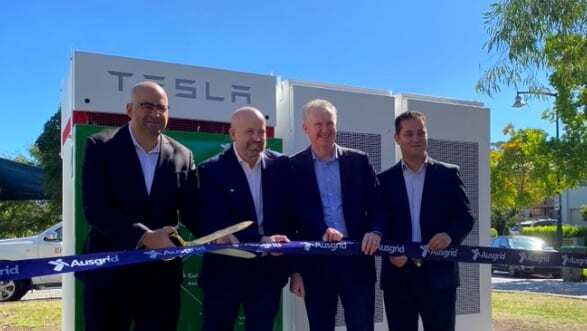Electricity distribution company Ausgrid is trialling the use of a centralised “community battery” in the Sydney suburb of Bankstown, that will allow local households to store their excess solar power, drawing from the battery as required.
Under the terms of the trial, up to 250 households will receive credits for each unit of excess solar electricity that is stored in the community battery, to an upper limit of 10kWh per day – an arrangement that could save them between $50 to $250 per year on energy costs.
At the same time, the batteries act as a solar sponge on solar-heavy parts of the network, storing solar power when it is plentiful in the middle of the day, and allowing it to be used during the peak periods, reducing pressure on the grid.Ausgrid is trialling two different types of battery systems as part of the trial, including two Tesla PowerPack 2 batteries, which each deliver up to 130kW of power and 232kWh of storage, alongside an MTU Energy Pack QS, which provides around 320kW/550kWh of storage capacity.
“We’re confident our community battery project will transform the way solar energy is stored, reduce residents’ hip pocket costs, reduce peak demand and support the use of renewable energy,” chief customer officer Rob Amphlett Lewis said.
“This shows that people are excited about the community battery concept, which allows multiple households in a certain area to ‘share’ a storage system for the excess energy generated by solar panels, and is a big step towards cost effectively increasing the amount of clean energy which goes into the grid.”
